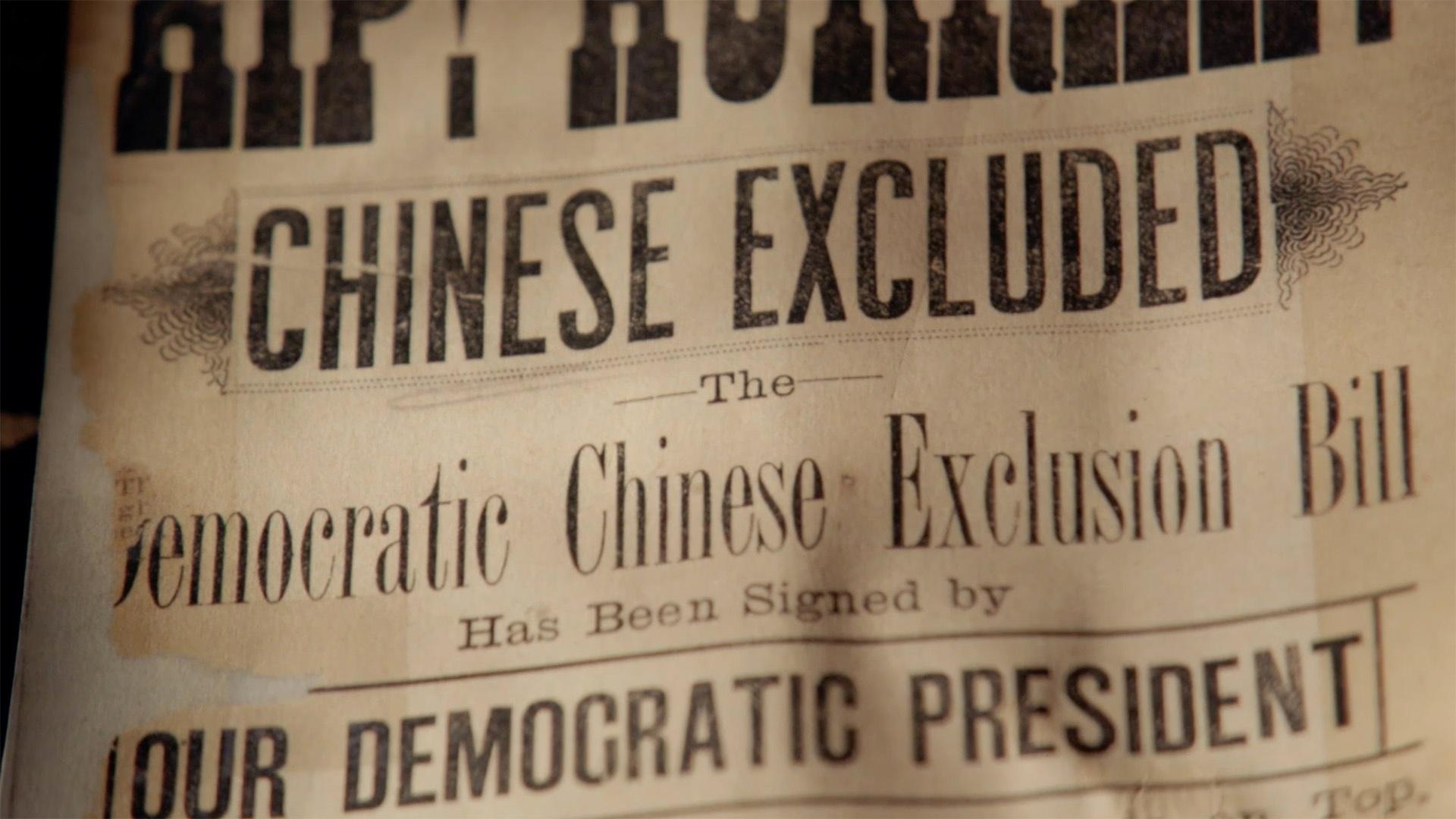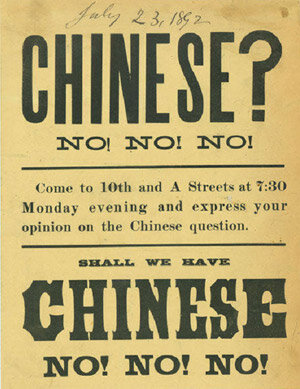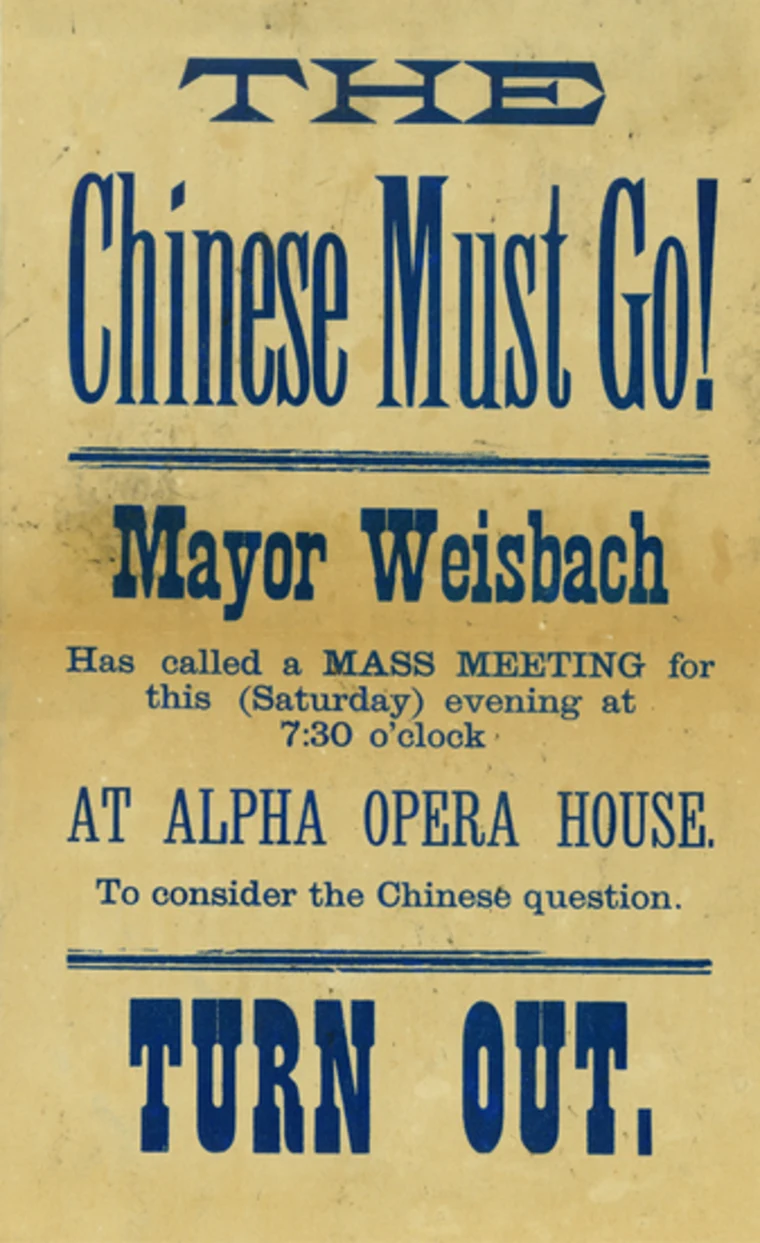Rise of Racism
Previous Immigration Patterns
War, famine, and poverty during the Qing Dynasty pushed Chinese citizens to seek work in other parts of the world. The Gold Rush and the construction of the Transcontinental Railroad created job opportunities - an opportunity for the Chinese to improve their lives.
“Immigrants from China first arrived in the 1840s, driven by poverty, hunger, and harsh economic conditions in the southern part of China…and found work in railroad construction, mining, and agriculture.”
~ Northern California Coalition on Immigrant Right
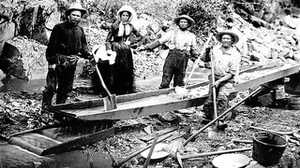
Immigrants panning for gold, California Gold Rush, July 9, 1850

Chinese railroad workers, 1919, Amon Carter Museum of American Art Archives
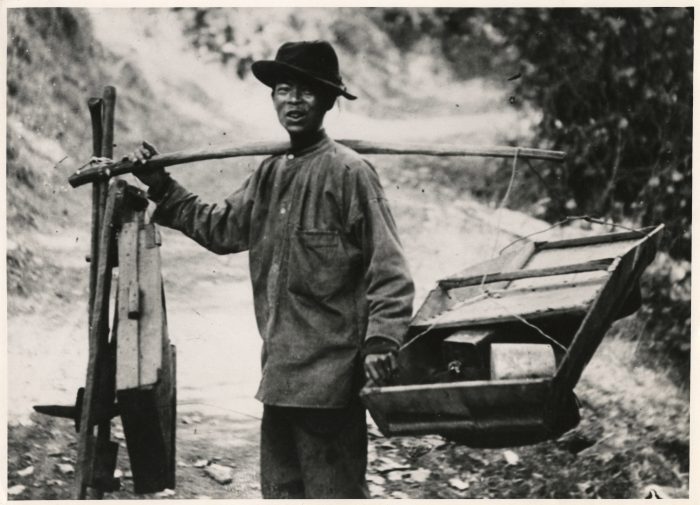
'First wave' Chinese immigrant worker, 1849
Han discrimination, under Manchu rule, led to the queue (biànzi 辮子) hairstyle that became a defining characteristic of American propaganda.
“Upon occupying Nanjing... [regent Dorgon] issued a decree formally requiring all Chinese to shave their foreheads and plait their hair in a queue like the Manchus... Chinese men had to conform... disobedience would be "equivalent to a rebel's defying the Mandate (of Heaven).”
~ Hair: Its Power and Meaning in Asian Cultures (Cheng, Weikun 1998)

“A Lesson to John Chinaman.” Illustration, August 9, 1857, HathiTrust Digital Library
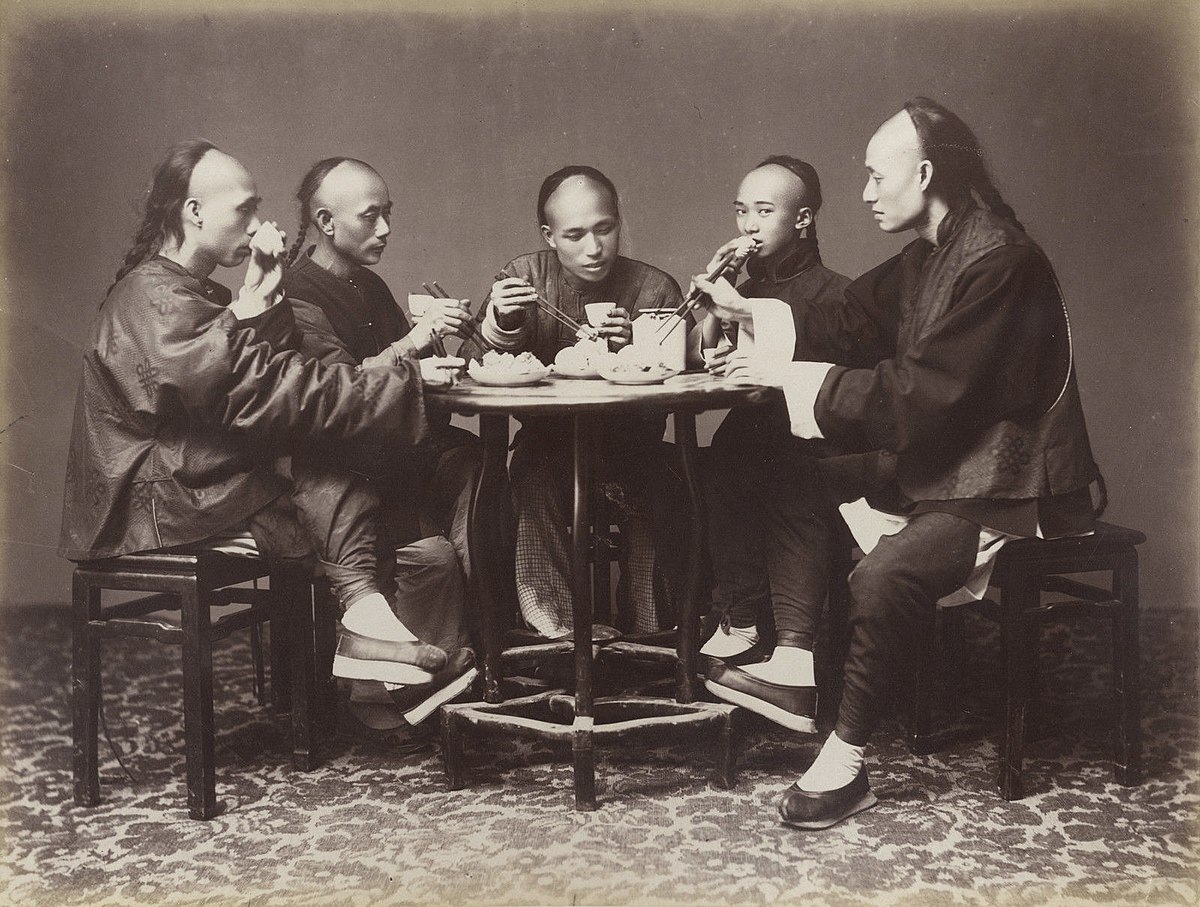
Chinese American men with queue hairstyles, San Francisco, 1880s
“Being afraid of inspiring any anti-Manchu imaginations and actions, the Qing rulers enforced the hair cutting policy and persecuted [other styles] without mercy.”
~ Hair: Its Power and Meaning in Asian Cultures (Cheng, Weikun 1998)
Chinese Exclusion Act
The increase in unemployed, and cheap laborers led to nationalist white resentment, leading to the passing of the Chinese exclusion act, which restricted Chinese immigration to the U.S.
“It was claimed that they deprived white men of positions by taking lower wages and that they sent their savings back to China; that thus they were human leeches sucking the very life-blood of this country.”
~ The Museum of the City of San Francisco (Henry Kittredge Norton)
“Whoever came to their defense was immediately accused of having mercenary motives or of being half-witted.”
~ The Museum of the City of San Francisco (Henry Kittredge Norton)
